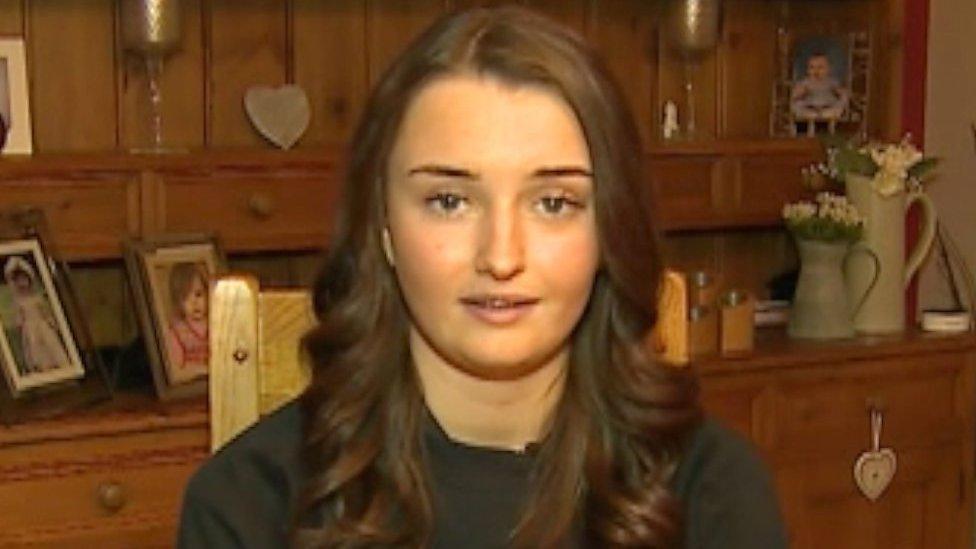First Dates contestant abused online for alopecia
- Published
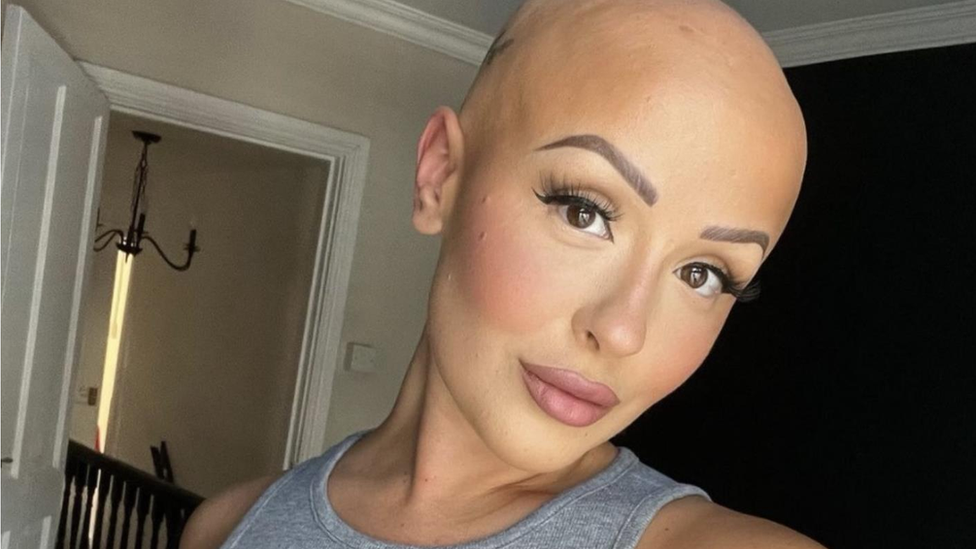
Eve Betts has lived with alopecia since the age of two
A reality TV contestant says she receives a storm of abuse and sexually explicit material over social media.
Eve Betts, 28, raises awareness of alopecia on her Instagram page, but said it meant she faced hate online.
"I get a lot of death threats. People saying that I should just die because of the way that I look," she said.
It comes as a new survey found four in five women and girls in Wales have received text-based abuse on social media platforms.
The Open University survey also found that nearly half were subjected to sexually explicit material.
Eve, from Bridgend, appeared on Channel 4's First Dates programme in 2017, where she took off her wig on camera.
Five years since the airing of the programme, she said she still receives abusive messages online "on a weekly basis", some including sexually explicit videos.
What is alopecia?
Alopecia is a disease that causes hair loss, often on the scalp.
There are many different types of alopecia, external, which can cause anything from hair thinning to total hair loss.
Eve said raising awareness of the condition could hard when she is faced with negative comments.
"I get quite a lot of personal comments on my appearance comparing me to the worst things like an alien or a robot," Eve said.
"All of these 'out of this world' kind of comments hurt more than just the standard abuse."
Eve said she had also received videos and even abusive voice notes.
These experiences can be "hard, mentally", she said.
"They're abusing me because I have alopecia and that's something that I can't help. That can just set the whole tone for my day," she said.
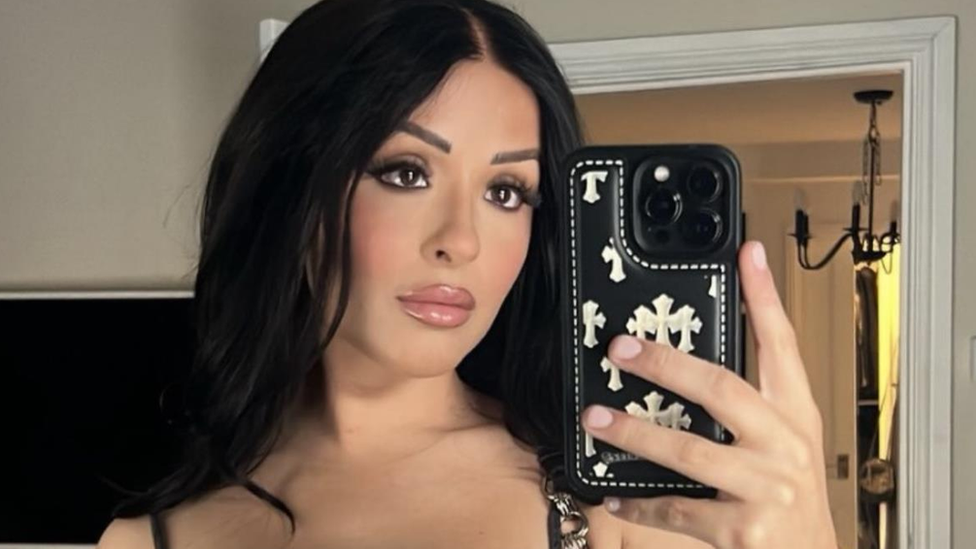
Eve says people compare her to an alien or a robot when she takes her wig off
New data suggests Eve is not alone.
The Open University survey found 48% of women and girls over the age of 16 in Wales had received sexually explicit abuse on social media via tweets, Facebook posts and direct messages.
Professor Olga Jurasz, from the The Open University, said: "This new research - the first ever to be conducted into online violence against women and girls at this scale across the four nations - shows just how widespread the issue of online violence against women and girls really is."
'Barrage of hate'
Jayne Cowan, a Conservative councillor for Rhiwbina in Cardiff, said she had received online abuse for over two decades.
"My experience with online abuse has been distressing," she said.
"The barrage of hateful messages, threats, and explicit content really is not pleasant," she said.
She said she reported the messages to social media companies, but the outcome had been mixed.
"While some social media platforms take action promptly, others may not respond in a timely manner to the police, I am advised," she said.
She said the inconsistency underscored the need for standardised and efficient reporting mechanisms across all platforms.
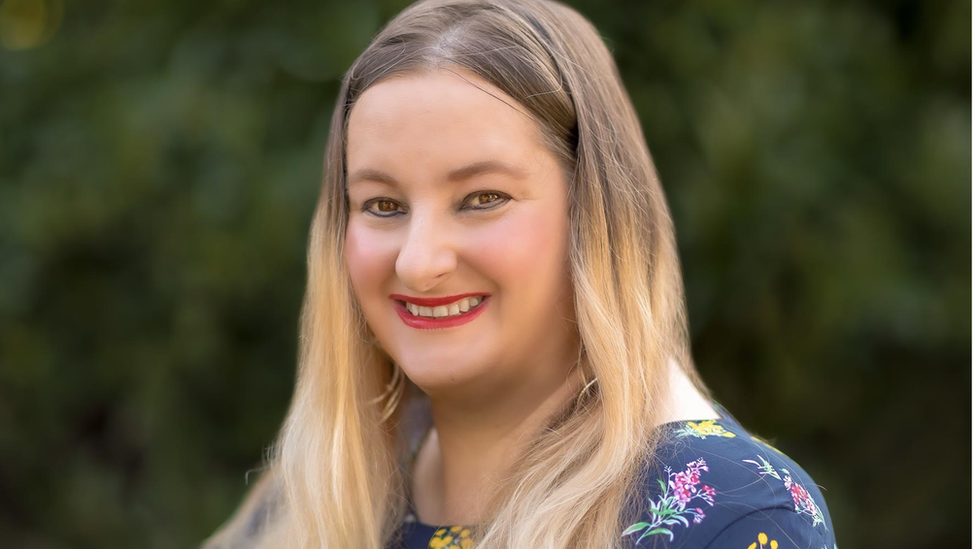
Jayne Cowan said her experience of online abuse has been distressing
Bethan Sayed, a campaign coordinator for Climate Cymru and a former Plaid Cymru member of the Senedd, has publicly spoken about abuse she received online during her time in office.
"It's sad that we still have to talk about these high figures of abuse," she said.
"It was at its worst for me about six, seven years ago, but it's still an issue today.
"There's enough technology now, AI is taking over everything, so there's enough ways to protect women online."
Meta, X, and all four police forces in Wales have been asked to comment.
The Home Office has also been approached for comment.
The Crown Prosecution Service said: "We take all cases involving online abuse extremely seriously and we will continue to work closely with our partners to build the strongest possible cases."
Additional reporting by Rebecca Miles
Related topics
- Published8 January 2023
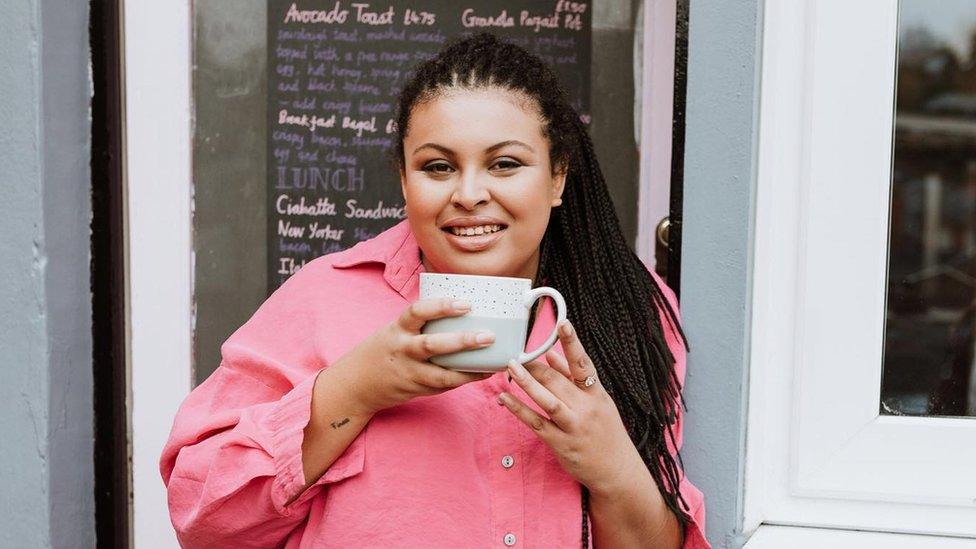
- Published24 January 2023
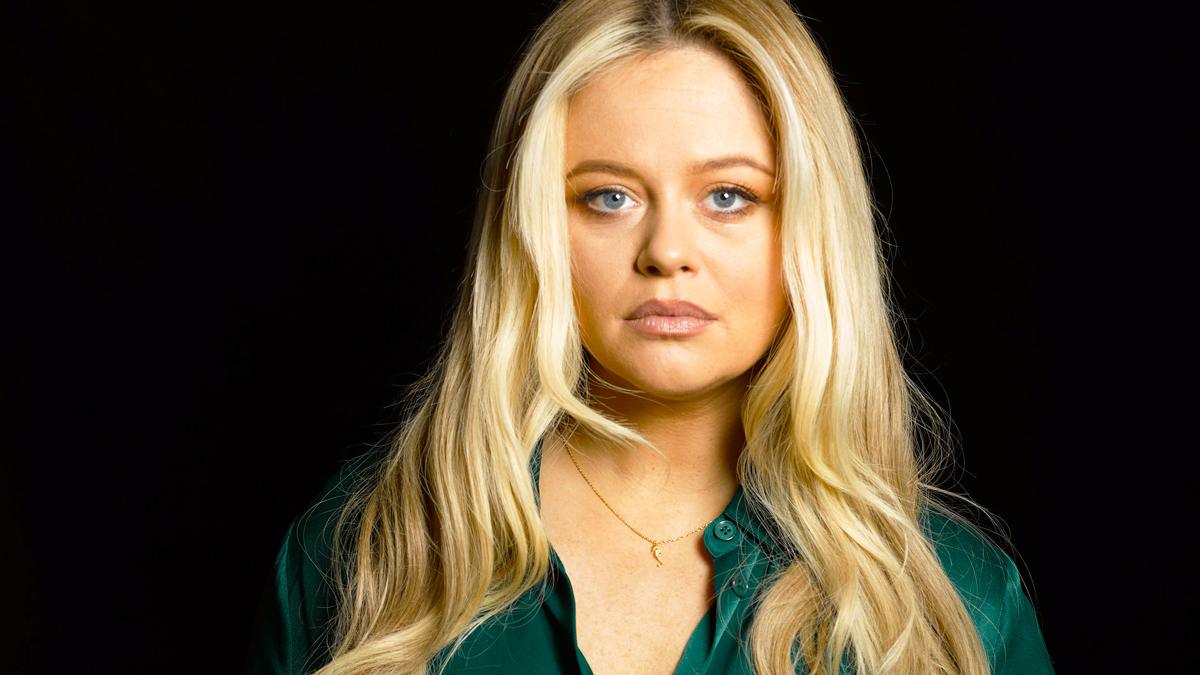
- Published29 March 2022
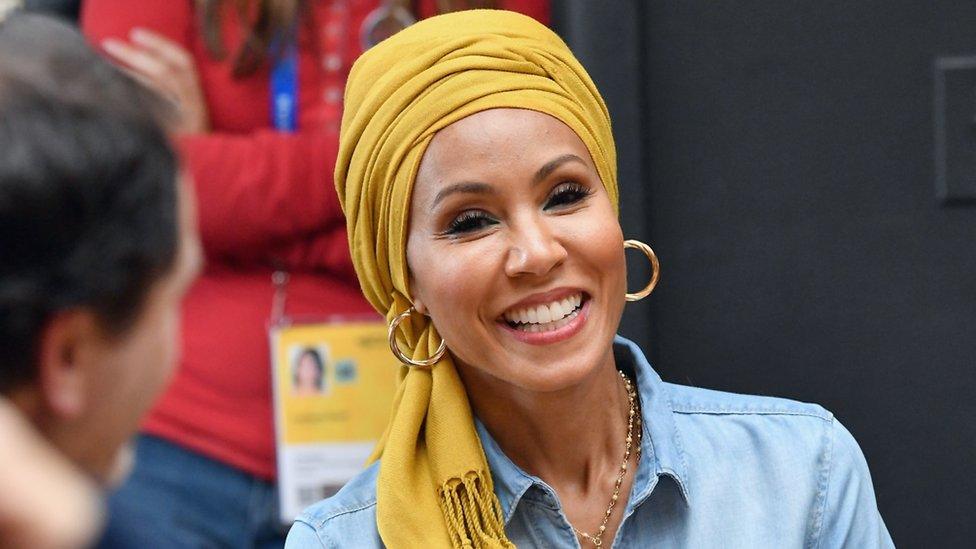
- Published11 March 2020
